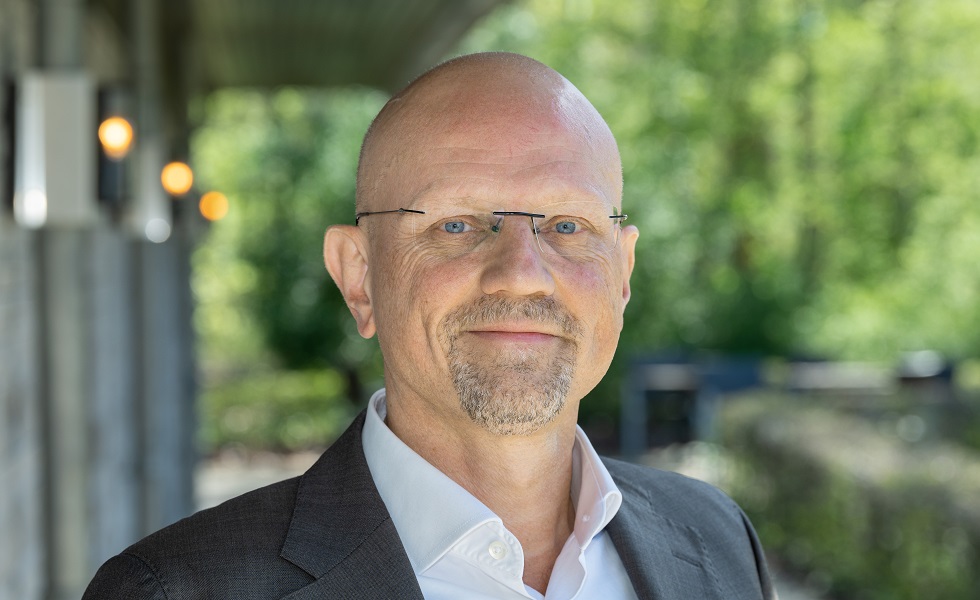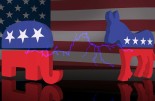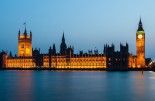Harry Geels: Why is our (economic) freedom being undermined?
Harry Geels: Why is our (economic) freedom being undermined?

This column was originally written in Dutch. This is an English translation.
By Harry Geels
This year's Liberation Day on May 5 was accompanied by many discussions about the importance of freedom. Unfortunately, there is some cause for concern about this. There are two major (geo)political system trends that put pressure on freedom.
At Liberation Day, we were once again reminded of how important our freedom and democracy are to us. This is often done by pointing out how many people gave their lives for it. The debate about our freedom also rages on social media, in which various ideologies are thrown into the fray.
On the one hand, capitalism is blamed for the restriction of freedoms and democracy. A frequently heard argument is that consumers become slaves to the big companies. From another political angle, socialism or (eco-)communism is getting the worst of it. From that perspective, it is claimed, for example, that undemocratically elected supranational organizations impose all kinds of measures and legislation on us, for example in the context of combating pandemics, (unwanted) migration flows, equality and the climate transition. Although the arguments of both camps are not always equally nuanced, the battle in directions can be well explained from a more holistic systems approach.
The transformation of the dominant systems
Both capitalism and (standard) socialism have changed shape in recent decades. This is depicted in Figure 1 with four quadrants, with the market on the horizontal axis (from completely free to completely disabled) and the degree of freedom on the vertical axis (also from completely free to completely disabled). As I have argued before, there is no longer a free capitalist system. Society, especially in certain sectors, has degenerated into a corporatocracy, where market forces have been limited by oligopolies.
Figure 1

On the other hand, (original democratic) socialism in the world also took a different turn during the 1980s. It has come to embrace neo-liberalism. 'Left-wing' people became 'rich' by trading in real estate and shares, or even by setting up their own business. This movement has also become a proponent of a kind of globalist socialism, in which ideals, for example expressed in the SDGs, are pursued through supranational organizations.
Undermining freedom
Both developments involve elements that restrict freedom. If ever larger corporates emerge, freedom of choice for consumers and price competition that is positive for consumers will be limited. Cross-connections can also arise between large companies and the government – for example through the lobby circuit – which potentially makes political decision-making less transparent. And the agenda of supranational organizations can clash with local political ideas. Countries that do not 'participate' run the risk of becoming 'outcast'.
As an aside, the symbiosis between corporatocracy and 'globalist socialism' is called 'corporate socialism'.
The importance of freedom
Freedom is important for people's well-being. Unfortunately, it goes too far to elaborate philosophically on this. For example, Jean-Jacques Rousseau, an influential philosopher from the eighteenth century, had interesting ideas about freedom. His best-known work on political philosophy, 'The Social Contract' (Le Contrat Social), deals with the concept of freedom in the context of society and the state. Rousseau believed that people can only be free in a state of nature, i.e. without participation in society.
And if people (still) come together and make laws that promote the common good, then these must be an expression of their freedom, says Rousseau. Another important freedom thinker is Nobel Prize winner Milton Friedman, who emphasizes the importance of the free market when it comes to freedom: 'A society that puts equality before freedom will get neither. A society that puts freedom before equality will get a high degree of both', a statement that he further substantiated, in his usual eloquent manner, in just two and a half minutes in this YouTube video.
Definition and preservation of freedom
A further point of discussion is how exactly we define freedom. Every year, The Heritage Foundation calculates a freedom score for 184 countries based on factors such as trade, investment opportunities, property rights and government intervention in the economy. His ranking of the freest countries in the world: 1. Singapore, 2. Switzerland, 3. Ireland, 4. Taiwan (still) and 5. New Zealand. The Netherlands is in 8th place. It is worrying that freedom scores have been declining on average all over the world in recent years.
We cannot and must not allow freedom – for whatever reason – to be further restricted. First, because throughout our history people have given their lives for it. And secondly, because there seems to be a positive connection between freedom and happiness. Therefore, we must be wary of the negative consequences of the above trends.
This article contains a personal opinion from Harry Geels








